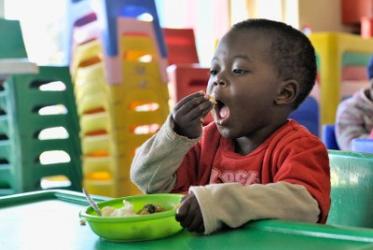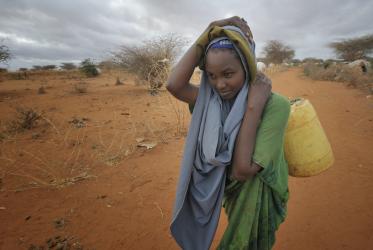Displaying 141 - 160 of 307
07 July 2017
Do we need an ecological reformation?
14 June 2017
Applications open for WCC Eco-School
10 May 2017
UN discussion focuses on women, HIV and property rights
21 March 2017
Seven weeks of Lent highlight water crisis in Africa
01 March 2017
Standing Rock decision ”Gospel news” for indigenous communities
08 December 2016
Plans for 2017 decided by WCC Executive Committee
01 December 2016
Lead by example: get HIV tested
30 November 2016














